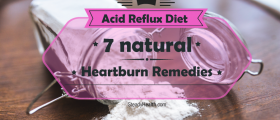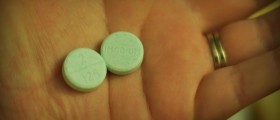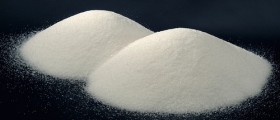Introduction
Sodium bicarbonate is also known as baking soda. It belongs to the group of antacids and is most commonly used to relieve a sour stomach, acid indigestion, and heartburn because it neutralizes excess stomach acid very efficiently. It can also be used for certain other purposes, such as the treatment of duodenal ulcers and various stomach illnesses.
Sometimes it can be used to make urine and blood more alkaline for certain purposes. It is generally recommended not to give sodium bicarbonate to children under 6 years of age. This remedy does not need a prescription to be purchased and used. Certain people may be allergic to sodium bicarbonate, so they should be careful before taking it. Sodium bicarbonate also poses some pediatric risks in infants, and it may worsen certain underlying conditions.
Risks and Side Effects
Sodium bicarbonate is known for sometimes causing intravascular volume expansion, which can result in hypoaldosteronism and hyperreninemia. If this occurs, the serum potassium usually gets elevated.

Baking soda can also be connected with certain symptoms of Munchausen syndrome as well as hypokalemic hypochloremic metabolic alkalosis, but it usually occurs very rarely in some patients that have certain underlying conditions. People who suffer from severe liver disease, renal insufficiency, or congestive heart failure must be extremely precautious because baking soda can sometimes lead to edema, water retention, and weight gain which get triggered by hypernatremia.
Rapid or prolonged administration of sodium bicarbonate can sometimes induce hypernatremia, hypokalemia, hypochloremia, hyperosmolarity, and metabolic alkalosis. Other metabolic side effects of baking soda include hyporeninemia, hypoaldosteronism, and the expansion of intravascular volume.
Baking soda can suppress the respiratory drive because the concentration of venous carbon dioxide gets increased. A worsened systemic acidosis can occur because there is no adequate ventilation provided. Among other respiratory side effects, the suppressed respiratory drive is the most significant of them all. Nervous system side effects of sodium bicarbonate include coma, tetany, irritability, mental stupor, and intraventricular hemorrhage. The hemorrhage gets triggered by a rapid infusion of sodium bicarbonate.
- The present study reported the case of a 69-year-old male patient hospitalized with metabolic alkalosis (pH 7.61; bicarbonate levels, 53.2 mEq/l), hypokalemia (K+ 2.6 mEq/l), acute kidney injury (serum creatinine level 4.02 mg/dl) and hepatic toxicity (alanine transaminase, 955 U/l; aspartate transaminase, 1,091 U/l) in the context of baking soda misuse as an alternative treatment for gout.
- The patient's past medical history included chronic uric acid nephropathy, gout, arterial hypertension and permanent atrial fibrillation. Under corrective treatment for the hydro-electrolyte and acid-base imbalances, the hepatic injury and inflammation markers were within normal limits; uric acid and creatinine serum levels also decreased.
More Side Effects of Baking Soda
Tetany and irritability are usually due to the hypernatremia and alkalosis induced by baking soda. Mental stupor and coma are caused by a significant decrease in the pH of cerebrospinal fluid during the administration of sodium bicarbonate. This usually occurs because the blood-brain barrier is much more permeable to hydrogen than to bicarbonate.
Local side effects include extravasation, venous irritation, tissue necrosis, IV site pain, cellulitis, skin sloughing, and ulceration. The most significant cardiovascular side effect that may occur is decreased cardiac contractility. Sodium bicarbonate can also cause gastric ruptures and excess gas release.

















Your thoughts on this
Loading...